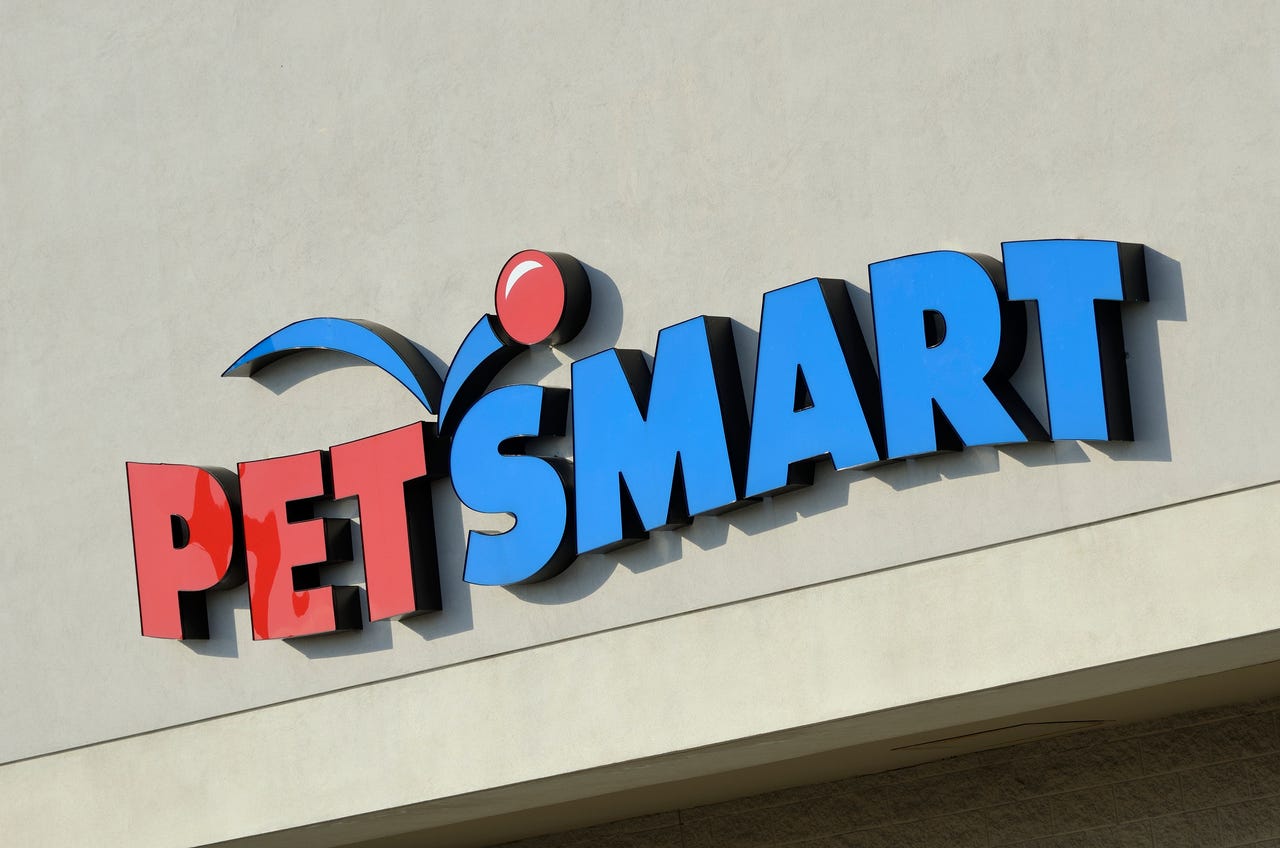How technology is saving PetSmart millions by eliminating sales fraud


PetSmart is catching criminals through high-tech methods, and last year alone saved $12 million by pinpointing fraudulent orders before they were shipped. This year, the retailer is on track to match that figure and then some.
As retail gets more high-tech, it's only natural that fraud prevention has more technology added to catch the criminals who try to place fraudulent orders. PetSmart, and many other retailers, are using technology from Kount to take fraud prevention to the next level and not just stop losses at the stores, but also help authorities prosecute criminals.
By tracking online fraudsters in 2017, PetSmart was able to cancel nearly $4 million in fraudulent orders. After labor loss, shipping costs, merchandise costs, chargebacks, fees and fines are added, that could translate to $3 to $3.50 for every dollar in fraudulent charges, for an annual total of about $12 million. For 2018, the figure is already at $1.5 million for the fiscal year, which began on February 1, so there might be more fraudulent orders caught this year than last year, said Chad Evans, manager of e-commerce investigations of PetSmart.
The brand damage would have also been significant, because no matter how the criminal acquired the credit card information to make a fraudulent charge, the customer will associate it with PetSmart and that PetSmart didn't protect their identity, Evans said.
How PetSmart moved fraud prevention in house
"PetSmart's situation is probably a little bit unique from some of Kount's other merchants, in the sense that previous to signing with Kount, everything e-commerce, operationally, was outsourced -- so fulfillment, customer service, fraud prevention, all of it was third-party companies," Evans explained. "So they decided basically the future of retail on the e-com side was to invest resources in it. Loss prevention came along with it. It wasn't like we had a different prevention tool or we had an in-house tool and we were looking to make a change or upgrade. It was simply, 'we are doing this ourselves and we need a tool that will do it.' Our third-party vendor didn't share historical data or anything, so we had no baseline to go off of. We didn't know if this was targeted fraud. We didn't know what our charge-backs looked like. It was essentially just, 'Let's hope for the best.' We flipped a switch and started accepting orders."
Evans has been with PetSmart since 2016, and he's part of a team of four investigators that do fraud review and investigate crime against the retailer.
More crime was solved as an unexpected side effect from the fraud prevention at PetSmart. The fraudulent orders led to the identification of a multi-state fraud ring, an FBI investigation into human trafficking, and even impacted the case of a murdered NYPD officer.
Identifying the individuals involved in trafficking stolen goods, linked to a person who was also part of an international human trafficking ring: the criminals were buying dog shock collars in bulk from PetSmart, and they were being used on people, Evans said.
The case is still ongoing and is currently under investigation by the FBI, and Interpol has also become involved, Evans said.
As for the NYPD officer who was murdered, a person was using stolen credit cards to make purchases, and he was part of a gang with a member who was suspected of killing the officer. The police used the PetSmart charges to leverage the fraudster's testimony against his friend who had committed the murder, and that led to a conviction.
How the technology works
PetSmart uses Kount's AI/ML-powered BOOST Technology, which aggregates millions of transactions and their outcomes, including approvals, charge-backs, refunds, and reviews. It weighs the risk of fraud against the value of each unique customer and identifies legitimate transactions versus fraudulent ones. BOOST evolves and and improves its algorithm as it builds a unique picture of each merchant's business.
BOOST's supervised AI/ML also includes an ensemble classifier with 250 models that evaluate how legitimate a single transaction is compared to all transactions received. The review process is done in about 250 milliseconds, so it doesn't add any noticeable time to the transaction.
"Fraud is an ever-evolving problem, so businesses must ensure their prevention technology evolves right alongside to maximize protection," said Rich Stuppy, COO at Kount. "In order to keep ahead of sophisticated fraud techniques, such as account takeover and transaction fraud, while simultaneously helping online merchants maximize order acceptance, our solution is designed to be dynamic, providing both protection and opportunities to increase sales and revenue. These efforts continue our long history of using AI and machine learning. We will launch several other initiatives that will be built on the foundation of BOOST Technology."
In addition to PetSmart, Kount works with merchants including Staples, Dunkin' Donuts, Domino's Pizza and Crate & Barrel. Kount is the fraud control solution for Braintree, which is a division of PayPal, and it handles fraud control for Chase, said Kount's CEO Brad Wiskirchen.
As transactions move from brick-and-mortar stores to a digitized environment, such as online or through an app, there's a greater need for a high-tech fraud solution, Wiskirchen said.
"I actually wish more of our clients were as aggressive as Chad is because most merchants are content with just stopping the fraud or stopping the fraudulent transactions that they say, but when you go the next step like Chad does and like PetSmart does, you end up with people behind bars and therefore protecting not just your transactions but everybody's transactions that that particular bad guy would have impacted," Wiskirchen said.
Also See
PayPal touts global reach as mobile wallets pop up in APAC
Banks, telcos, and e-commerce players in the region now offer their own payment platforms, but PayPal believes its global reach and security infrastructure will ensure its market relevance.PayPal shopping spree continues, buys Simility for $120 million
The purchase is the fourth acquisition in the last 12 months.Supreme Court rules for internet sales tax: States can charge all online shoppers
This court ruling changes everything about internet e-commerce. Billions in sales every year will now be taxed, which had been left untouched for over a generation.Consumers spending more money, less time while shopping via smartphone (TechRepublic)
Faster internet speeds and an increased focus on e-commerce could be making it easier for consumers to shop from a mobile device.